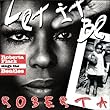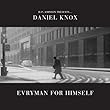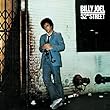 Intimate, with advice to young love and what sounds like acoustic guitar, the durable quality of “Hey Jude” is proven, and durability has made it and other songs by the Beatles nearly public property (yet, they remain too lucrative to become public property). Flack performs the song “Hey Jude” with a confiding, childlike simplicity, and it is sweet, possibly too sweet. Flack told journalist Mike Ragogna of Huffington Post, posted February 6, 2012, that she approached the song as if it were a hymn; and she also said, “It’s about coming back to basics and simplicity.
Intimate, with advice to young love and what sounds like acoustic guitar, the durable quality of “Hey Jude” is proven, and durability has made it and other songs by the Beatles nearly public property (yet, they remain too lucrative to become public property). Flack performs the song “Hey Jude” with a confiding, childlike simplicity, and it is sweet, possibly too sweet. Flack told journalist Mike Ragogna of Huffington Post, posted February 6, 2012, that she approached the song as if it were a hymn; and she also said, “It’s about coming back to basics and simplicity.
Category: Music reviews
Beauty, Pain, and Strength: Carolin Widmann and Alexander Lonquich perform a Fantasy, Rondo, and Sonata by Franz Schubert
 Widmann, born in Munich, studied in Cologne, Boston, and London, and has performed with orchestras in several of the world’s great cities, such as Paris, Rome, and Vienna; and with Alexander Lonquich, who was born in Trier, a prodigy who has become an international performer and conductor, Widmann has chosen to explore Schubert music of beauty, emotion, technique, and thought. The “Rondo h-Moll” has an exalted, even extreme beauty, and the “Sonate A-Dur” (or “Sonata”) creates in the listener an alternative consciousness.
Widmann, born in Munich, studied in Cologne, Boston, and London, and has performed with orchestras in several of the world’s great cities, such as Paris, Rome, and Vienna; and with Alexander Lonquich, who was born in Trier, a prodigy who has become an international performer and conductor, Widmann has chosen to explore Schubert music of beauty, emotion, technique, and thought. The “Rondo h-Moll” has an exalted, even extreme beauty, and the “Sonate A-Dur” (or “Sonata”) creates in the listener an alternative consciousness.
A Young Woman Reflects, Sorrow as Treasured Gold: Adele at 21
 There are few artists with the skill or substance to bring people together; and Adele is one of the special ones. Her album 21 is full of good songs, particularly “Rolling in the Deep,” “Rumour Has It,” “Don’t You Remember,” “Set Fire to the Rain,” and “He Won’t Go.” May time and grace be on her side.
There are few artists with the skill or substance to bring people together; and Adele is one of the special ones. Her album 21 is full of good songs, particularly “Rolling in the Deep,” “Rumour Has It,” “Don’t You Remember,” “Set Fire to the Rain,” and “He Won’t Go.” May time and grace be on her side.
Nostalgia for the Impossible: All Our Reasons by the Billy Hart Quartet
 Billy Hart, a musician and a teacher, the kind of talented and developing journeyman without which jazz could not exist, periodically works with saxophonist Mark Turner, pianist Ethan Iverson, double-bassist Ben Street as part of a quartet, beginning almost a decade ago. The quartet’s saxophonist Mark Turner also works with a trio called Fly, and pianist Ethan Iverson with The Bad Plus, and bassist Ben Street with Danilo Perez, Sam Rivers, and James Moody; and with Billy Hart they get to play with someone whose history is deep in jazz.
Billy Hart, a musician and a teacher, the kind of talented and developing journeyman without which jazz could not exist, periodically works with saxophonist Mark Turner, pianist Ethan Iverson, double-bassist Ben Street as part of a quartet, beginning almost a decade ago. The quartet’s saxophonist Mark Turner also works with a trio called Fly, and pianist Ethan Iverson with The Bad Plus, and bassist Ben Street with Danilo Perez, Sam Rivers, and James Moody; and with Billy Hart they get to play with someone whose history is deep in jazz.
Source and Resource (Papa Don’t Take No Mess): James Brown’s 20 All Time Greatest Hits!
 James Brown is said to have added something unique to a popular music tradition that includes musicians and performers such as Louis Armstrong, Duke Ellington, Ethel Waters, Lena Horne, John Coltrane, Chuck Berry, Little Richard, Fats Domino, Smokey, Marvin, Diana, and Stevie, Curtis Mayfield, Sly Stone, Roberta Flack, Donna Summer, Minnie Riperton, Michael Jackson, Whitney Houston, Mariah Carey, and Beyonce Knowles. Yet, Brown’s work was not always popular; it was done first for a minority of people and its appeal gained force and range.
James Brown is said to have added something unique to a popular music tradition that includes musicians and performers such as Louis Armstrong, Duke Ellington, Ethel Waters, Lena Horne, John Coltrane, Chuck Berry, Little Richard, Fats Domino, Smokey, Marvin, Diana, and Stevie, Curtis Mayfield, Sly Stone, Roberta Flack, Donna Summer, Minnie Riperton, Michael Jackson, Whitney Houston, Mariah Carey, and Beyonce Knowles. Yet, Brown’s work was not always popular; it was done first for a minority of people and its appeal gained force and range.
Sounds, Fragmented and Whole: Elastic Aspects by the Matthew Shipp Trio
 On Elastic Aspects by the Matthew Shipp Trio, featuring bassist Michael Bisio and drummer Whit Dickey, the composition “Mute Voice” is a pretty piece, although its notes seem half-articulated, clipped before they are allowed to achieve fullness or resonance. Banging, rumbling, sounding more like experimental music than traditional jazz is “Explosive Aspects.”
On Elastic Aspects by the Matthew Shipp Trio, featuring bassist Michael Bisio and drummer Whit Dickey, the composition “Mute Voice” is a pretty piece, although its notes seem half-articulated, clipped before they are allowed to achieve fullness or resonance. Banging, rumbling, sounding more like experimental music than traditional jazz is “Explosive Aspects.”
Sound and Sensibility: Britten, Bach, and Ligeti, performed by violoncellist Miklos Perenyi
 The sound is exalted and exultant but it also seems focused on something troubled, worrying—as if a great spirit had been hurt and was grappling with the pain. Complex emotion, complex sounds—the many labels for structural movements in classical composition are an indication of how difficult it is to organize and perceive complexity.
The sound is exalted and exultant but it also seems focused on something troubled, worrying—as if a great spirit had been hurt and was grappling with the pain. Complex emotion, complex sounds—the many labels for structural movements in classical composition are an indication of how difficult it is to organize and perceive complexity.
Pianists Greg Anderson & Elizabeth Joy Roe’s When Words Fade, with work by Vivaldi, Mozart, Bizet, Schubert, Radiohead, Coldplay and more
 The Russian composer Sergei Rachmaninoff’s always wordless “Vocalise” is, also, a bit heavy, somber. Sergei Rachmaninoff (1873-1943) used modern harmony within traditional form, writing songs, concertos, and operas (one opera was The Miserly Knight, and he created a cantata based on Edgar Allen Poe, The Bells).
The Russian composer Sergei Rachmaninoff’s always wordless “Vocalise” is, also, a bit heavy, somber. Sergei Rachmaninoff (1873-1943) used modern harmony within traditional form, writing songs, concertos, and operas (one opera was The Miserly Knight, and he created a cantata based on Edgar Allen Poe, The Bells).
Hateful Inspirations: the album Evryman for Himself by Daniel Knox
 Daniel Knox is a bit of a paradox, presenting to the world songs that speak of the hopelessness of self and society. “Ghostsong,” with its old-fashion masculine voice, is a hateful tribute. The attitude is one that recurs throughout the album. One imagines that there must be some truth to the attitude, but, also, that the attitude is heightened for dramatic effect. “I make enemies everywhere I go” and “it’s human to feel cheated” and “I leave victims in my path” are some of the assertions in the song “I Make Enemies,” which is given a jaunty rhythm, akin to a brassy anthem from a theater musical. The narrator of the song feels crowded, inconvenienced by other people.
Daniel Knox is a bit of a paradox, presenting to the world songs that speak of the hopelessness of self and society. “Ghostsong,” with its old-fashion masculine voice, is a hateful tribute. The attitude is one that recurs throughout the album. One imagines that there must be some truth to the attitude, but, also, that the attitude is heightened for dramatic effect. “I make enemies everywhere I go” and “it’s human to feel cheated” and “I leave victims in my path” are some of the assertions in the song “I Make Enemies,” which is given a jaunty rhythm, akin to a brassy anthem from a theater musical. The narrator of the song feels crowded, inconvenienced by other people.
A Link Between Gershwin and Rock: Billy Joel, 52nd Street, featuring “Big Shot” and “My Life”
 Billy Joel claims that tenderness is more common than truth in his downbeat, string-laden ballad “Honesty,” which he sings with a full-throated intensity that verges on bombast, although the simplicity of the theme, the actual necessity of truth, justifies the expression of passion. Paul McCartney’s influence is perceptible in the piano arrangement in the story-song “My Life,” about the sudden shifts, the instability, in American lives as well as the quest for individuality (there is a direct relationship between the quest and the instability; and the song’s observations are funny).
Billy Joel claims that tenderness is more common than truth in his downbeat, string-laden ballad “Honesty,” which he sings with a full-throated intensity that verges on bombast, although the simplicity of the theme, the actual necessity of truth, justifies the expression of passion. Paul McCartney’s influence is perceptible in the piano arrangement in the story-song “My Life,” about the sudden shifts, the instability, in American lives as well as the quest for individuality (there is a direct relationship between the quest and the instability; and the song’s observations are funny).